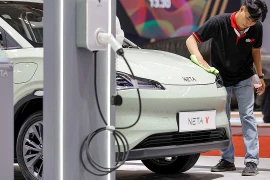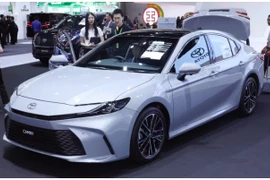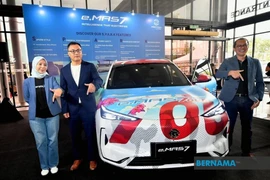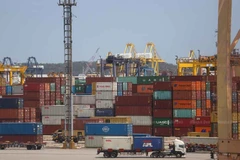Hanoi (VNA) – Malaysia's electric vehicle (EV) market is expected to gain momentum in 2025, driven by localisation investments and new models from local automakers, Xinhua news agency said, citing many analysts.
It quoted a recent report of Maybank Investment Bank as saying that Malaysia's incentives for completely built-up EVs, including duty exemptions and import restrictions for lower-priced models, will expire at the end of 2025. This will prompt mass premium EV makers to localise assembly to maintain competitive pricing.
Malaysia's EV adoption is forecast to reach 3% of total industry volume (TIV) in 2025, while hybrid electric vehicles (HEVs) could account for 5%, based on Maybank's TIV projection of 750,000 units for the year.
A study by the Malaysian Industrial Development Finance Berhad (MIDF) Research also highlighted the government's focus on promoting Malaysia as a hub for affordable EV production.
Although EV still plays a minor role in TIV, CGS International suggested that removing fuel subsidies in mid-2025 and accelerating charging infrastructure could trigger an inflection point for EV adoption.
According to CIMB Securities, higher adoption of battery electric vehicles (BEVs) as competition intensifies ahead of the 2026 duty exemption expiry for imported models, and domestic assembly will take precedence.
Malaysia's national automakers are stepping into the EV market amid the government's EV push.
Malaysian automaker Proton recently unveiled its first electric SUV in collaboration with its partner. Meanwhile, Perodua plans to launch a B-segment hatchback EV in late 2025, aiming for initial monthly production of 500 units, positioning the model as Malaysia's most affordable EV.
Maybank said that the growing range of EV models in Malaysia could drive investment in public charging infrastructure. Malaysia targets to have 10,000 EV chargers in 2025. At the current rate of 111 installations per month, achieving this goal will require a fivefold increase in deployment.
Despite the increasing adoption of EVs, analysts still anticipate a decline in Malaysia's automotive TIV in 2025. While the EV segment shows growth potential, traditional automotive segments continue to face headwinds.
CGS International foresees Malaysia's TIV normalising to 780,000 units in 2025, after three years of record sales.
However, it also highlighted opportunities for local automakers to expand export markets and strengthen brand equity as domestic assembly capabilities improve alongside a more skilled labour force./.



























